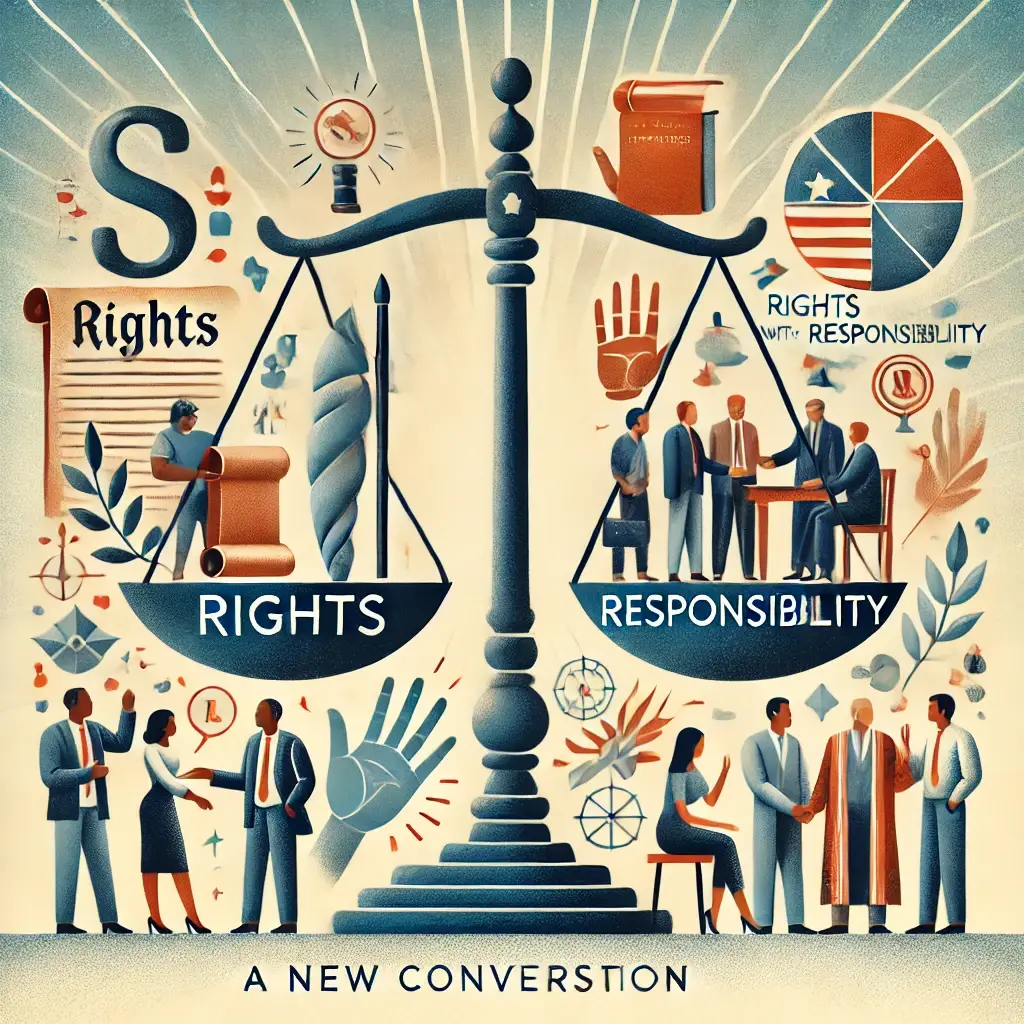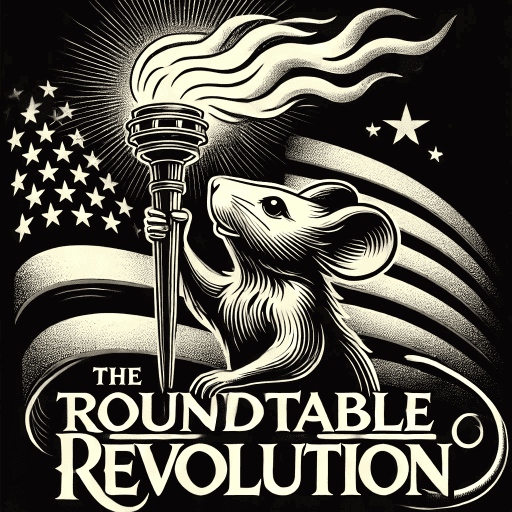
Rights with Responsibility:
A New Conversation
Rights and Responsibilities: A New Conversation
The Constitution is a remarkable document, built on the principles of liberty, equality, and justice. It gave us the framework for an experiment in self-governance, one that has lasted for more than two centuries. But in the spirit of progress, we must confront the realities of how our society has evolved. The framers of the Constitution made certain assumptions about the decency, integrity, and shared values of the American people—assumptions that are tested daily in our modern world.
This is not about diminishing the rights enshrined in the Constitution but about understanding that with rights come responsibilities. Free speech, for example, is a cornerstone of our democracy, yet even the First Amendment has limits: you cannot yell “fire” in a crowded theater and create chaos. Why? Because with the right to free speech comes the responsibility not to harm others through reckless or malicious behavior.
The Principle of Ordered Liberty
At the heart of this discussion is the principle of Ordered Liberty, a foundational concept recognized by the Founding Fathers. Ordered liberty acknowledges that individual freedoms do not exist in isolation—they are exercised within the framework of a well-ordered society. This principle does not diminish individual rights but situates them within a collective context, ensuring that liberty for one does not infringe on the liberty of others.
Ordered liberty reflects the delicate balance between personal freedoms and the common good. It is why laws exist to protect society from harm while still safeguarding the rights of the individual. It is the reason why the Constitution creates a framework for government that includes both checks on power and mechanisms to promote justice and order.
As our society evolves, the principle of ordered liberty becomes even more critical. The freedoms enshrined in the First and Second Amendments, for example, must adapt to the complexities of modern life. The Constitution is not a static document—it was designed to grow with the nation it governs. In the same way, our understanding of rights must evolve to address the realities of misinformation, technological advancement, and societal change.
Freedom with Accountability
But here’s the challenge: how do we reconcile this principle in a world where public figures, politicians, and even entire media empires can stand before millions of people and knowingly spread lies or misinformation with no accountability? How do we balance the sanctity of free speech with the responsibility to uphold truth and integrity?
Sixty years ago, buying a car came with a manual that assumed the buyer was capable of changing their own oil. Today’s manuals warn you not to drink the battery acid. The world has changed, and while Americans are as brilliant, diverse, and full of dreams as ever, the environment we navigate is far more complex. What was once offensive is now commonplace, and what was once unthinkable is now normal. We must adapt—not to limit our freedoms, but to ensure that those freedoms are wielded responsibly.
This is not an easy conversation, but it’s a necessary one. Shouldn’t we demand better from those in power? From those with the platforms to shape public opinion? It is perplexing that anyone with a microphone and a camera can spread lies without consequences, yet the American people are left to sort fact from fiction with little support. We face a similar challenge with artificial intelligence: adapting and protecting ourselves from technology’s potential harm while embracing its benefits. Why should the principles behind free speech be any different?
Strengthening the Constitution for Modern Realities
That’s why I believe it’s time to explore strengthening the First Amendment—not by limiting it, but by reinforcing its power to protect the American people. Free speech must remain a cornerstone of our democracy, but so must accountability for those who intentionally weaponize it to spread harm. We must adapt the words of the First Amendment to meet the challenges of today, just as the framers intended for future generations to evolve this living document.
Similarly, the Second Amendment must balance the right to bear arms with safeguards that protect public safety. These principles do not weaken the Constitution but reflect the Founders’ intent: to create a society where liberty thrives in harmony with order.
Ordered Liberty in Action
The Roundtable Revolution’s approach to rights and responsibilities reflects the very essence of ordered liberty. We seek not to diminish freedoms but to strengthen them by ensuring they serve the greater good. This is about transparency, fairness, and collaboration. It’s about restoring integrity to a system that has lost its way.
Finding the balance between rights and responsibilities isn’t just a political necessity—it’s a moral one. If we truly want a government that works for the people, we must first ensure that the truth has a seat at the table, and that the exercise of rights reflects the shared values of fairness and accountability.
Share! Pass it along! That’s how this works! Let it begin!


